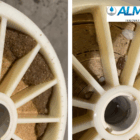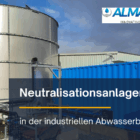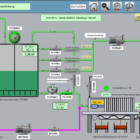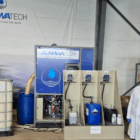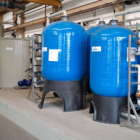Membrane filters are highly specialized filter systems used in industrial water and wastewater treatment for the separation and purification of liquids. They work on the principle of separation filtration and use a semi-permeable membrane to remove particles, dissolved substances or microorganisms from liquids. Membrane filters are used in a wide range of applications, from drinking water treatment to the treatment of industrial wastewater and process water.
Table of contents
Structure and mode of operation
A membrane filter consists of several main components:
Membrane element:
- The central component that represents the filtration medium. It can be designed as a flat membrane, hollow fiber membrane or spiral membrane.
Housing:
- Holds the diaphragm element and provides the hydraulic connection to the water flow.
Permeate and concentrate lines:
- Discharge the purified water (permeate) and the retained impurities (concentrate).
Pump systems:
- Provide the necessary pressure to operate the filtration process through the membrane.
Filtration processes
Depending on the pore size and separation mechanism, membrane filters are divided into different types:
1. microfiltration (MF):
- Removes particles and microorganisms in the size range from 0.1 to 10 µm.
- Typical applications: Pre-filtration in water treatment, removal of suspended solids and bacteria.
2. ultrafiltration (UF):
- Separates particles and macromolecules in the range from 0.01 to 0.1 µm.
- Typical applications: Removal of viruses, colloids and proteins.
3. nanofiltration (NF):
- Removes dissolved substances such as salts and organic molecules with a pore size of 0.001 to 0.01 µm.
- Typical applications: Water softening, removal of organic substances.
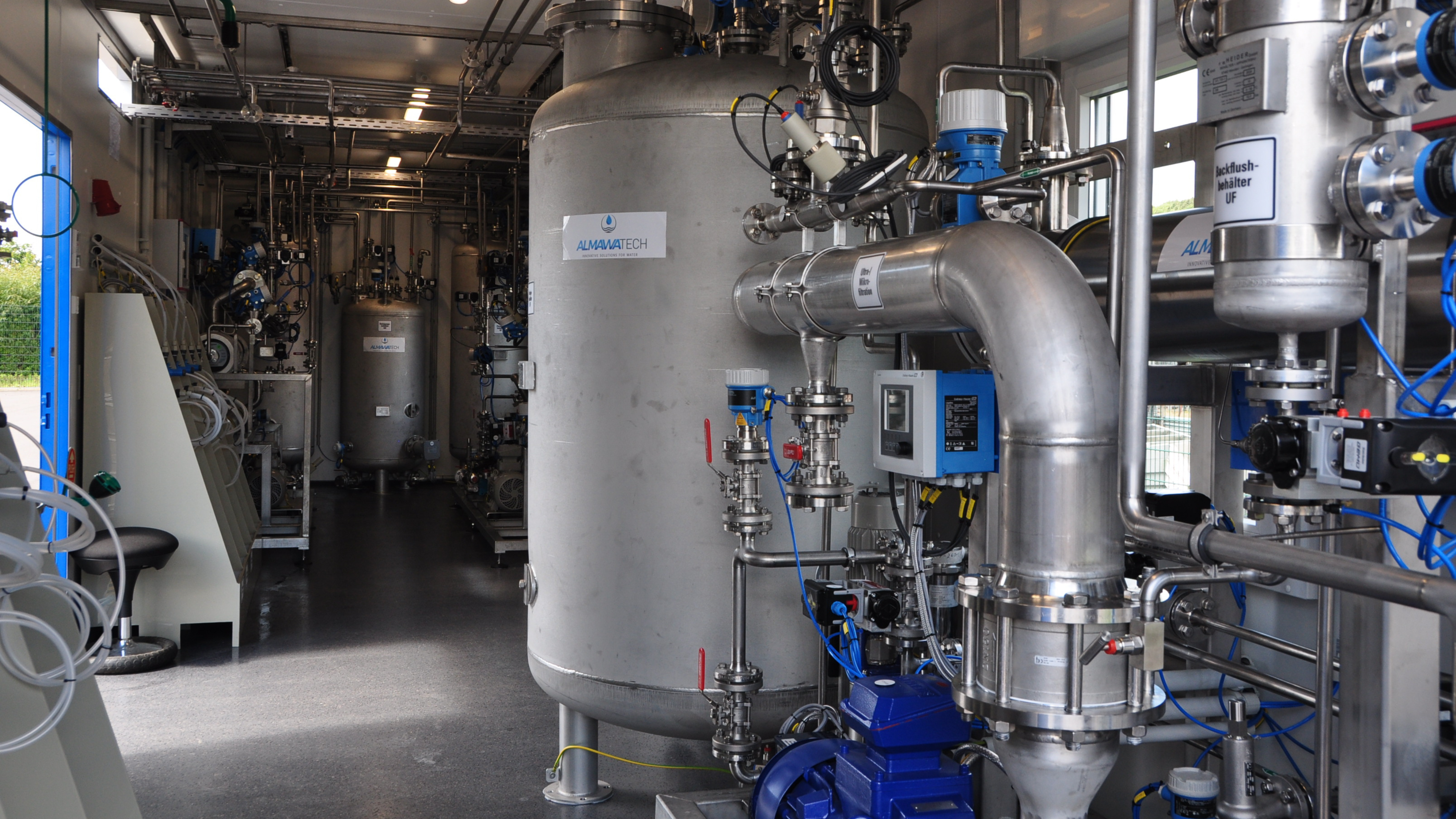
Photo: ALMA Mem UF ultrafiltration module in stainless steel design, installed in the ALMA Modul technical room container
4. reverse osmosis (RO):
- Works on a molecular level and removes almost all dissolved salts and organic compounds.
- Typical applications: Desalination of seawater and brackish water, production of ultrapure water.
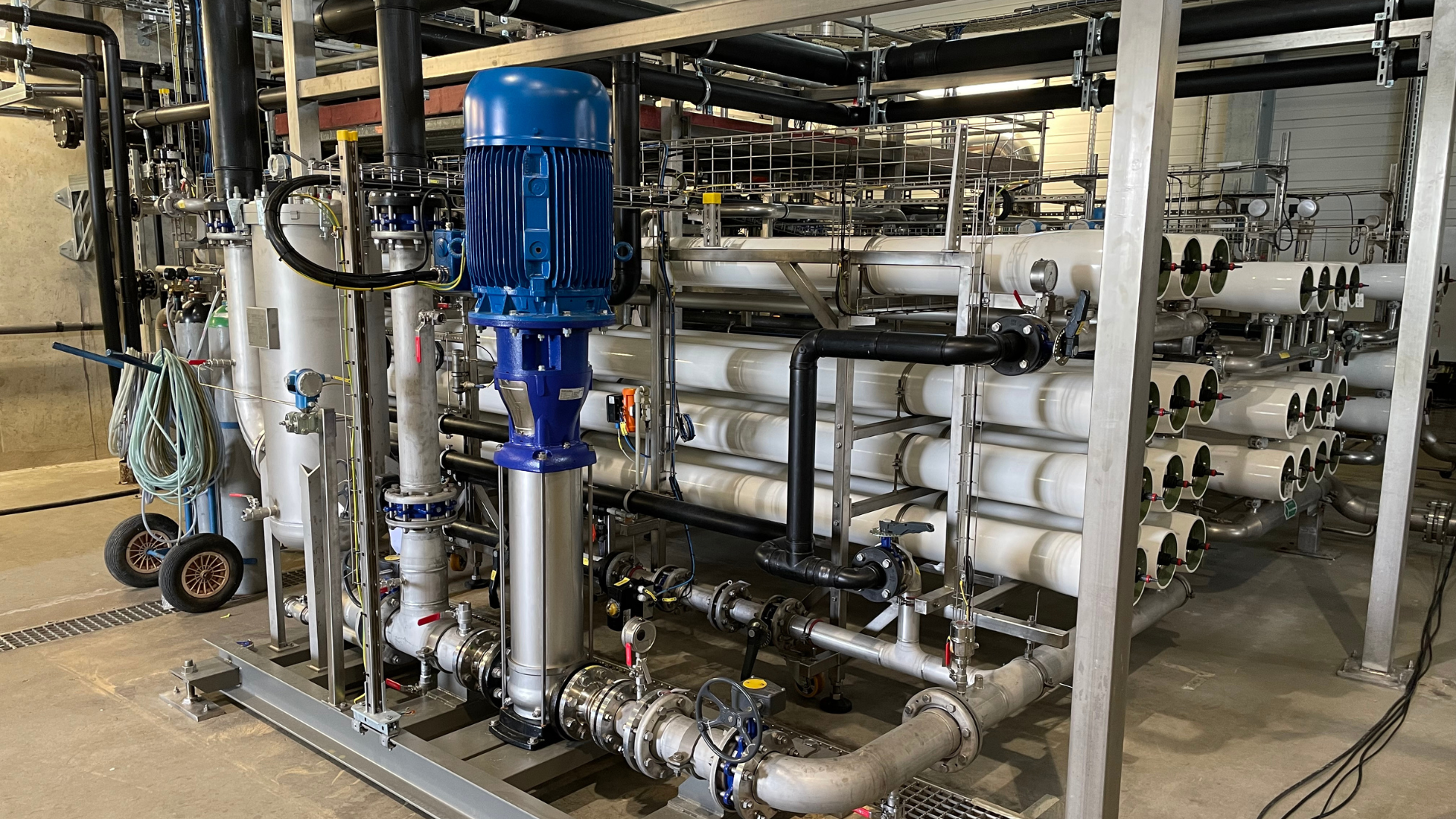
Photo: Our ALMA BHU BiosS-Treat reverse osmosis system for producing demineralized water from wastewater with prior precipitation and flocculation
Technical background
Membranes are made of polymeric or ceramic materials. Polymers such as polyethersulfone (PES) or polyvinylidene fluoride (PVDF) are frequently used as they offer high chemical resistance and mechanical stability. Ceramic diaphragms are preferred for applications with high temperatures or aggressive media.
Operating parameters such as temperature, pressure and pH value play a decisive role in the efficiency and service life of the membranes. Regular cleaning of the membranes is necessary to prevent deposits (scaling) or blockages (fouling).
Areas of application
Drinking water treatment:
- Removal of pathogenic germs and impurities.
Industrial wastewater treatment:
- For the recovery of water and removal of pollutants such as heavy metals or organic compounds.
Food and beverage industry:
- Used for clarifying juices, dairy products and in the production of alcoholic beverages.
Chemical and pharmaceutical industry:
- Production of ultrapure water and separation of process chemicals.
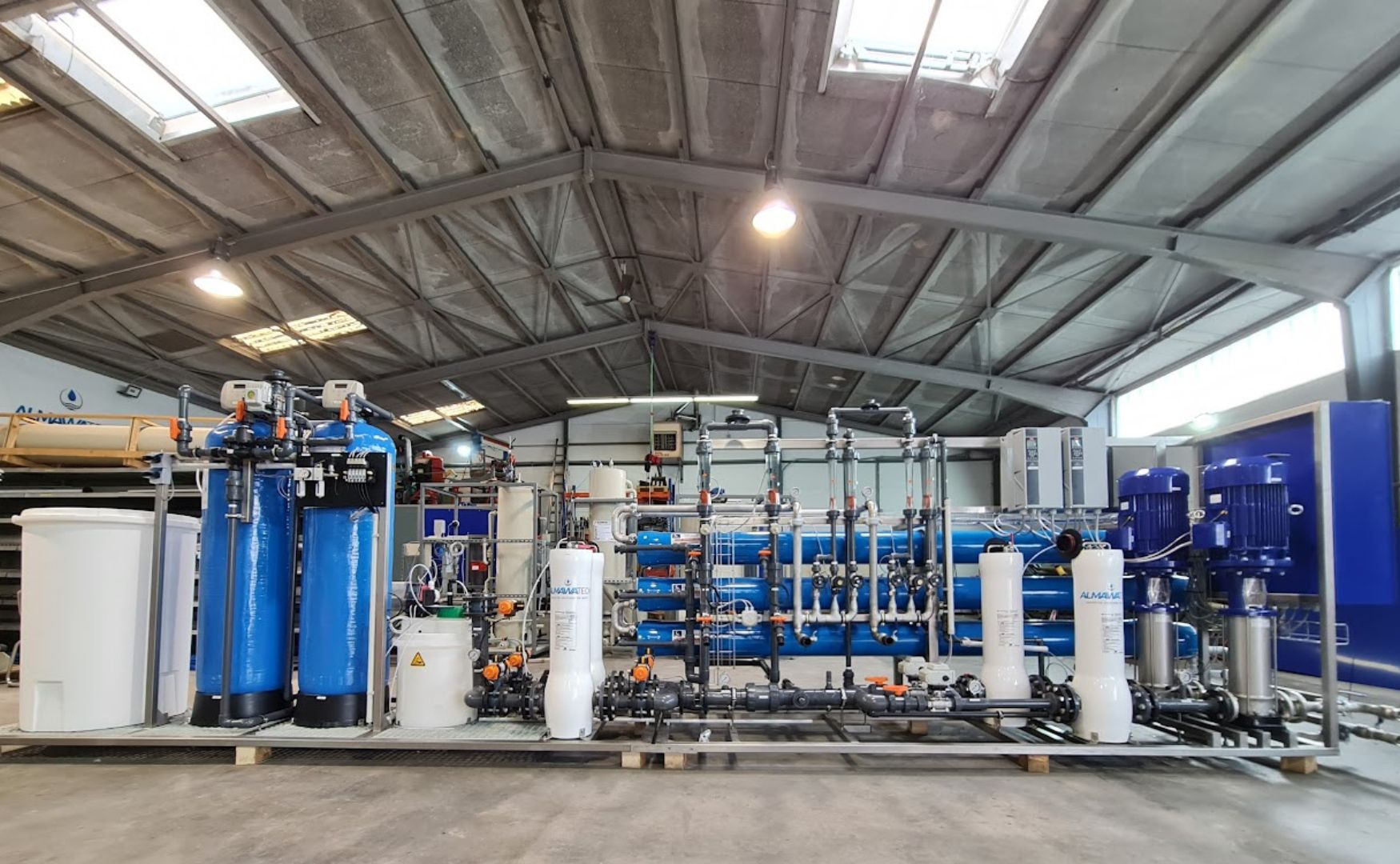
Photo: ALMA OSMO Process reverse osmosis system with softening and microfiltration
ALMAWATECH solutions
ALMAWATECH offers customized membrane systems for specific requirements in water and wastewater treatment. Our product portfolio includes Membrane filter systems for microfiltration, ultrafiltration, nanofiltration and reverse osmosis. We support our customers from planning and piloting through to implementation of the optimum solution. With our expertise, we ensure that every system offers maximum efficiency and cost-effectiveness.
Conclusion
Membrane filters are a key technology in modern water treatment. Their versatility and efficiency make them an indispensable component in numerous industries. Thanks to the continuous development of membrane materials and systems, their application is becoming ever broader, offering significant advantages both ecologically and economically.
For further information on our products, please feel free to contact us at any time!


